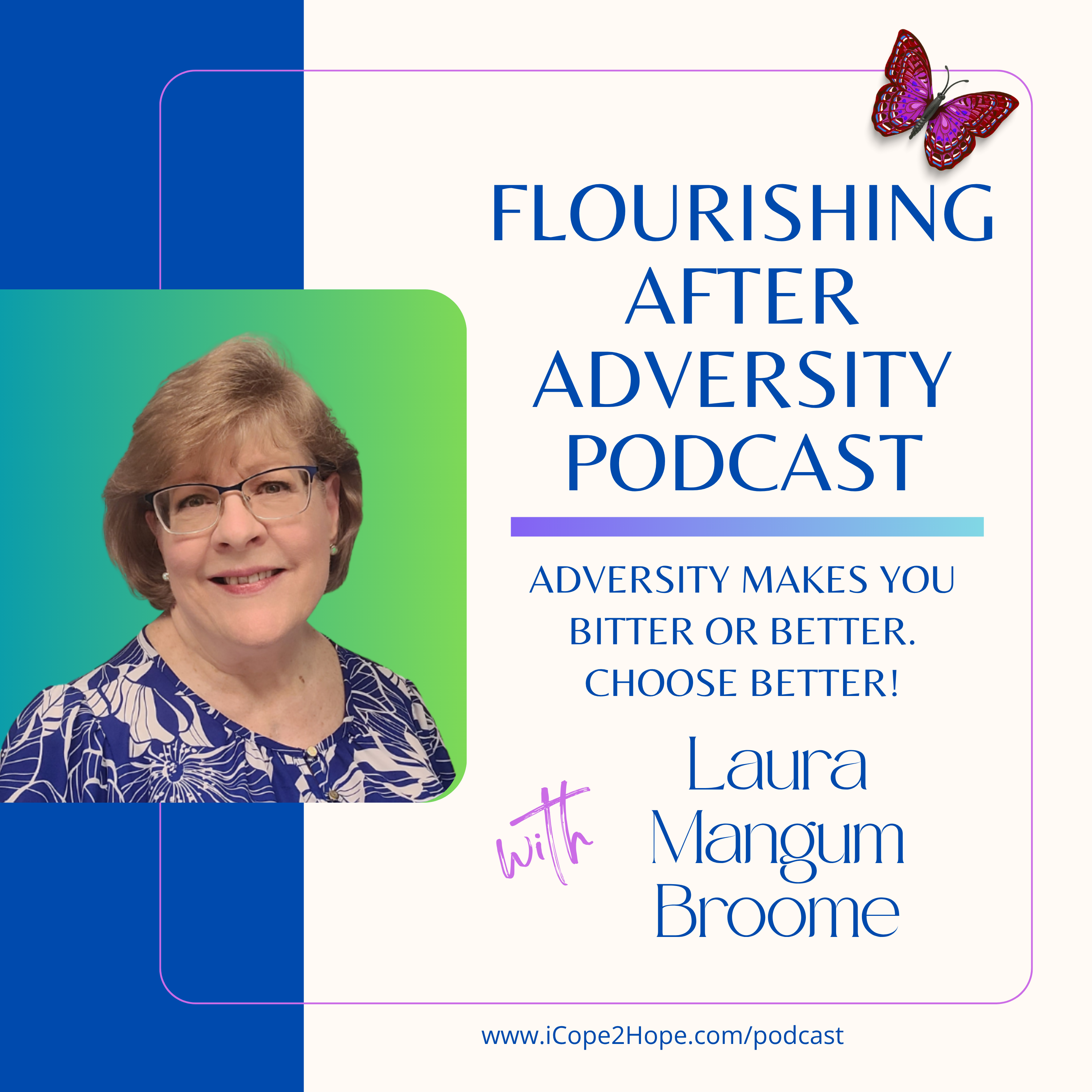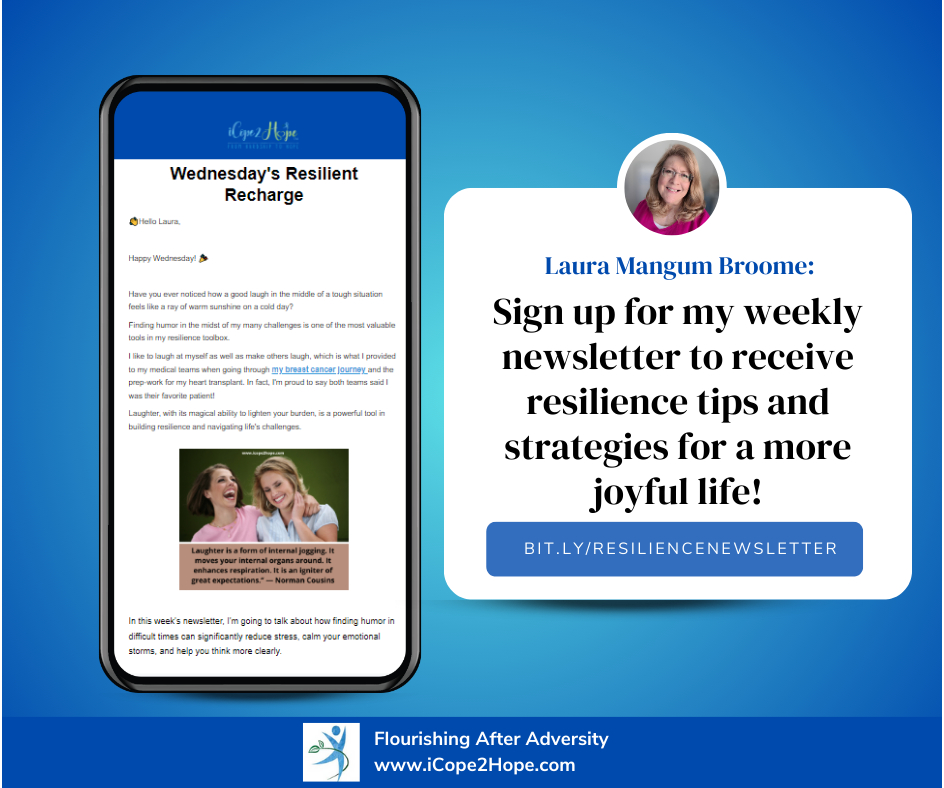9 Strategies to Overcome the Fear of Change and Flourish in 2024

Three years ago, at the age of 58, I was suddenly shoved outside of my comfort zone. The door to get back in was quickly slammed, locked, bolted, and sealed shut.
After I exhausted myself by pounding on the door and yelling, "Let me in!" with no response I turned around to see what else I could do, I found myself staring apprehensively at a seemingly familiar place called Unexpected Change.
I've visited this place a few times in the past and I didn't like it, at all. In fact, after five minutes of visiting, I couldn't wait to run back to my comfort zone, my safe place that was familiar and comfortable. Nothing every happened here, not even change.
The place called Unexpected Change felt like chaos. It was uncomfortable. It was cruel. It made me feel overwhelmed, stressed, and anxious.
Unexpected Change filled my mind with too many negative thoughts: Why is this happening to me? I don't deserve this! Life isn't fair! I can't deal with this! My life is out of control!
Have you ever felt this way or experienced any of these thoughts? You aren't alone.
Change is Inevitable
Change is an inevitable part of life, yet it is often met with resistance and fear.
As a resilience coach, I've seen firsthand how the fear of change can paralyze individuals, hindering their personal and professional growth. However, embracing change is not only possible but can also be a transformative experience that leads to significant personal development.
In this article, we will explore strategies to confront and overcome the fear of change, emphasizing the importance of adaptability and courage in navigating life's transitions.
Understanding the Fear of Change
Before you can overcome the fear of change, it's important to understand its roots.
Fear of change often stems from uncertainty, loss of control, and the discomfort of stepping out of your comfort zones. It's a natural response to potential threats to your familiar and predictable environment.
Recognizing these feelings as a normal part of the change process is the first step towards managing them.
Strategy 1: Reframe Your Perspective
The way you perceive change significantly impacts your reaction to it. Instead of viewing change as a threat, try to reframe it as an opportunity for growth and learning. When faced with change, ask yourself: What can I learn from this? How can this help me grow? This shift in perspective can transform fear into curiosity and openness.
Strategy 2: Small Steps Towards Big Changes
The prospect of a big change can be overwhelming. To make it more manageable, break it down into smaller, achievable steps. Focus on what you can do today, no matter how small, to move towards the change. This approach not only makes the process less daunting but also provides a sense of accomplishment and progress.
Strategy 3: Develop a Support System
Having a strong support system can be incredibly helpful in navigating change. Reach out to friends, family, or colleagues who have gone through similar experiences. Share your fears and listen to their stories and advice. Knowing that others have successfully managed change can be both comforting and inspiring.
Strategy 4: Cultivate Flexibility and Openness
Flexibility and openness are key traits in adapting to change. Try to embrace the unknown and be open to different outcomes. Practice being flexible in small ways in your daily life – take a different route to work, try a new food, or change your routine. This helps build your adaptability muscles, making you more prepared for larger changes.
Strategy 5: Embrace the Learning Process
Every change brings with it a learning curve. Accept that you may not be perfect at first and that mistakes are part of the process. Approach change with a learner's mindset, focusing on the skills and knowledge you are gaining rather than on perfection.
Strategy 6: Practice Mindfulness and Self-Care
Mindfulness practices such as meditation, deep breathing, or yoga can help manage the stress and anxiety that often accompany change. Additionally, prioritize self-care. Ensure you are getting enough rest, eating well, and engaging in activities that you enjoy and that rejuvenate you.
Strategy 7: Visualize Positive Outcomes
Visualization is a powerful tool in overcoming fear. Spend time regularly visualizing yourself successfully adapting to the change. Imagine how you will feel and what your life will look like. This positive imagery can create a mental and emotional roadmap, guiding you through the transition.
Strategy 8: Set Realistic Expectations
It's important to have realistic expectations about the process of change. Understand that it might take time and there will be challenges along the way. Be patient with yourself and recognize that progress often comes in waves, with ups and downs.
Strategy 9: Seek Professional Help if Needed
Sometimes, the fear of change can be overwhelming and deeply rooted. In such cases, seeking the help of a professional, such as a therapist or a coach, can be beneficial. They can provide personalized strategies and support to help you navigate through your fears.
Embracing Change as a Path to Growth
Change, though often feared, is a powerful catalyst for growth and development. By understanding our fears, reframing our perspective, taking small steps, and building our adaptability and courage, we can turn the challenges of change into opportunities.
It's not about eliminating fear but learning to move forward despite it.
Each time we confront and overcome our fear of change, we grow stronger, more resilient, and better equipped to face the next challenge life throws our way.
In summary, overcoming the fear of change requires a combination of mindset shifts, practical strategies, and support. By embracing these approaches, we can navigate life's transitions with greater confidence and courage, opening ourselves up to a world of possibilities and personal growth.
To learn more of how I overcame my fear of starting life over at age 58, get my book, "Flourishing After Adversity: A 3-Step Action Plan to Transform Pain into Purpose and Embrace Joy Again."
Grab Your Free Guide!
The Reframe the Spiral: 5 Coping Strategies to Shift Negative Thoughts & Reclaim Your Day workbook walks you step-by-step through 5 proven mindset strategies to help you stop negative thoughts in their tracks and reconnect to your strength. You'll learn how to:
- Stop letting your inner critic lead your day
- Discover clarity despite chaos
- Calm intense emotions
- Rebuild your self-trust and confidence
- Create a plan for real possibility
Stay connected with news and updates!
Join our mailing list to receive the latest tips and proven coping strategies to strengthen your resilience. You CAN turn obstacles into opportunities and flourish in life.
We hate SPAM. We will never sell your information, for any reason.



